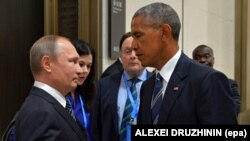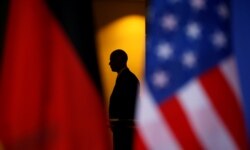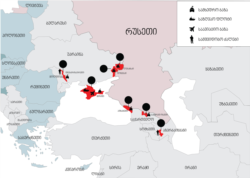On November 17, the 44th president of the United States, Barack Obama, released his memoir, “A Promised Land.”
Obama has promoted the book as “an honest accounting of my presidential campaign and my time in office,” covering a wide range of issues, from the global financial crisis that confronted him in 2008 to his controversial escalation of the U.S. drone program.
Regarding foreign affairs, Obama took aim at Russian President Vladimir Putin. He said Putin had become “sharply critical of American policy,” and that “when U.S.-backed initiatives came before the U.N. Security Council, [Putin] made sure Russia blocked them or watered them down — particularly anything touching on human rights.”
Obama’s book is unsparing toward Putin, calling him a “physically unremarkable man” who, “with the fastidiousness of a teenager on Instagram … [projected] an almost satirical image of masculine vigor.”
He further likened Putin to a Chicago-style ward boss, “except with nukes and a U.N. Security Council veto,” who treated life as “a zero-sum game” where “a lack of scruples” and “a contempt for any high-minded aspirations beyond accumulating power, were not flaws” but “an advantage.”
Russian-state broadcaster RT focused on the former U.S. president’s characterization of Russia’s international status in a news article headlined: “Russia isn’t a ‘superpower’ because it doesn’t project ‘military power across the globe' says former US president Obama.”
Summarizing Obama, the article’s anonymous author writes:
“If [Russia] wants to be taken seriously on the world stage, Russia should take a leaf out of Washington’s book and deploy more of its soldiers in other countries. That’s according to former US President Barack Obama.”
This, however, mischaracterizes what Obama wrote.
Nowhere does the former U.S. president state that Russia should deploy more troops in other countries to be taken seriously, nor did he say Russia is not a superpower because it “doesn’t project military power” across the globe.
Rather, Obama argues that Russia is not a superpower because it lacks the capability to broadly project power like the U.S.
“Despite having a nuclear arsenal second only to our own, Russia lacked the vast network of alliances and bases that allowed the United States to project its military power across the globe,” Obama wrote.
It is open to debate whether or not Obama is right on that count. But it’s a far different point than the misrepresentation published by RT.
Russia, in fact, has projected its military power beyond its borders, invading Georgia and Ukraine, as well as intervening militarily in Syria in 2015 and deploying troops to Venezuela in 2019.
And, as has been the case with its 2014 annexation of Crimea and continued military involvement in eastern Ukraine, Russia has actually sought to obscure its role in various conflicts by deploying state-backed mercenaries or unmarked soldiers.
The U.S. Africa Command has accused the Kremlin-backed Wagner paramilitary group of interfering in Libya. Moscow has denied that, although independent United Nations monitors have confirmed the presence of Wagner fighters in the North African country.
The U.S. State Department believes as many as 2,500 Wagner troops were active in Libya during the first quarter of 2020.
Wagner mercenaries have also been reported in the Central African Republic, Sudan, Mozambique and Madagascar.
In August, Germany’s Bild newspaper, citing the country’s Foreign Ministry, reported that Russia seeks to build military bases in six African countries.
On November 11, Russia’s Prime Minister Mikhail Mishustin approved a draft agreement on establishing a naval logistics base in Sudan to “meet the goals of maintaining peace and stability in the region.”
In July, 33 members of Wagner were detained in Belarus, with Belarusian President Aleksandr Lukashenko claiming they were there to interfere with the August 9 election. On August 14, all but one of the mercenaries — a Belarusian national — were sent back to Russia.
Russia has also deployed “peacekeepers” in several neighboring states that have frozen and hot conflicts that erupted with the collapse of the Soviet Union, including Moldova, Azerbaijan and Georgia.
Russia currently maintains military bases in breakaway regions of Georgia, Moldova and Azerbaijan, as well as in Belarus, Kazakhstan, Kyrgyzstan, Syria, Tajikistan and Vietnam.








